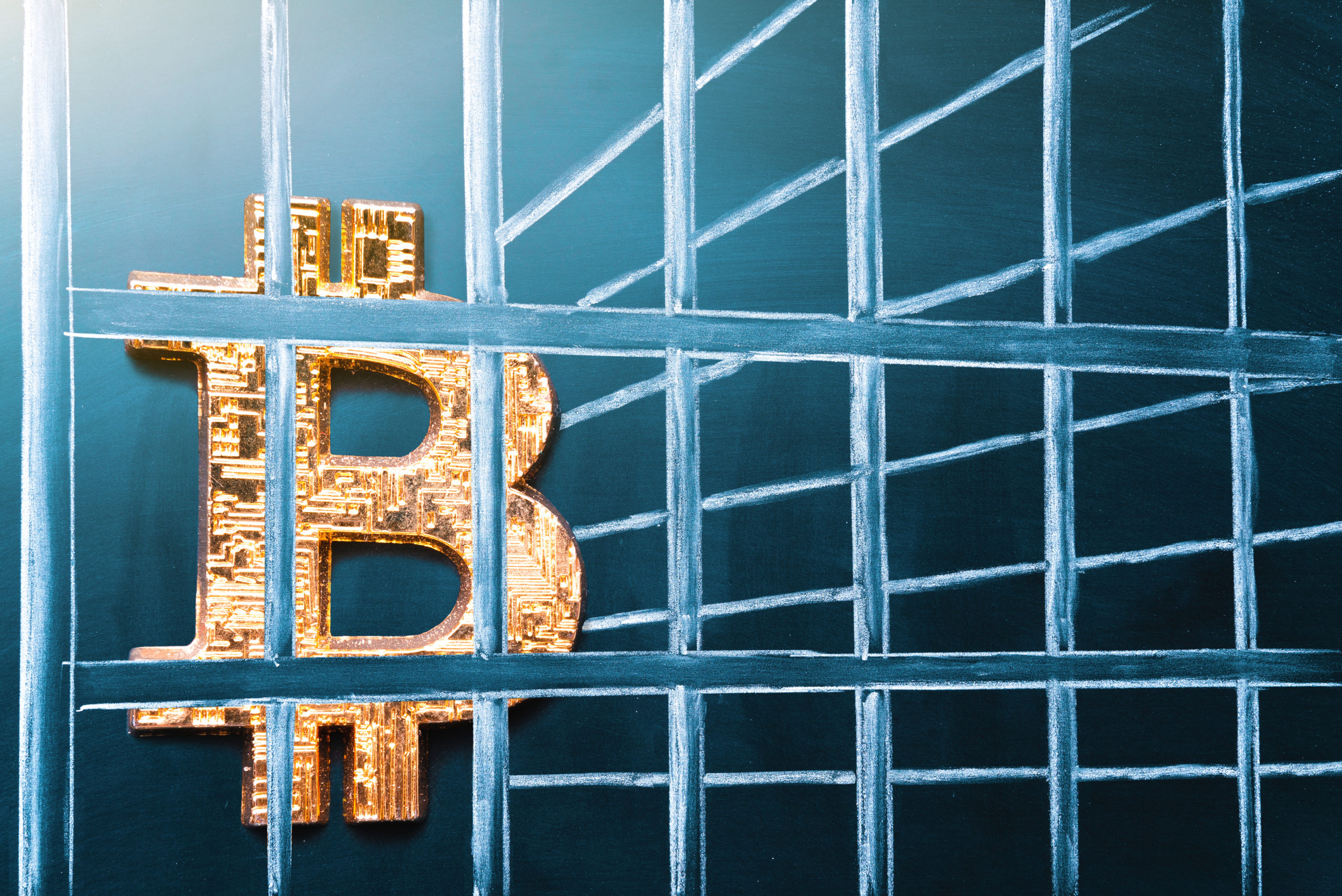The perfect tool to thwart the ambitions of modern autocrats.
Free Bitcoin

Inept regulation threatens to suffocate the greatest innovation finance has seen in centuries.
It has been a bit over thirteen years since Satoshi Nakamoto emerged to introduce the world to an idea he had been working on: Bitcoin. A Peer-to-Peer Electronic Cash System. Since that announcement, the protocol has attracted a great deal of attention, capital, and scrutiny.
As it stands today, the market cap of Bitcoin is $1.25 Trillion. It is beginning to be accepted by many across the world as something that will not be going away any time soon. As many in power begin to come to grips with the fact that Bitcoin isn’t going away, they are beginning to ask themselves, “How do we regulate this thing?”
I am here to politely ask those who would like to “regulate Bitcoin” to resist the urge and instead turn inward and reflect on the damage that has been wrought by compounding decades’ worth of abysmal regulatory policy decisions, which have done little to stop crime and a whole lot to erode individual privacy, civil liberties, and safety.
What is Bitcoin?
To set the stage for a diatribe against US banking regulations in the context of Bitcoin, it is probably advantageous to describe Bitcoin in the context of American values as put forth by the Founding Fathers. Put simply, Bitcoin is the greatest extension and written preservation of Natural Rights since the Bill of Rights was passed by Congress in 1789. The peer-to-peer cash system that Satoshi launched allows any individual with access to the internet the ability to opt in to and audit a free-market monetary system, uncontrolled by any central bank. The world has been in desperate need of this for well over a century.
By creating a private-public key pair specific to the Bitcoin network, an individual can receive, send, and secure the world’s first digital bearer instrument all by themselves. By creating a 12- or 24-word representation of their private key, anybody who so wishes can walk around naked with the access key to their wealth memorized in their head. There is no more need to trust a bank to grant you access to your wealth, nor to lug a heavy metal like gold across borders to transport your wealth if and when you decide to seek greener pastures. Bitcoin brings these functions into the 21st century and supercharges them in a way that is going to change our markets and culture for the better.
Since money is the base-layer protocol of economic exchange between humans the world over, it is a very important tool. I would take it a bit further and argue that money is the most important tool that humans use. Either way, it would be in our best interest to ensure that we are using the best version of that tool possible.
Unfortunately we have been forced to use very poor monetary goods running through very centralized systems. Most do not realize this because most do not understand money or the concept that there can be free market monies. They simply accept that government-issued monetary goods are the only monetary goods.
Satoshi understood the inherent problems with government-approved, central-bank-controlled monetary systems. He described them succinctly in an email to the P2P Foundation mailing list a little over a month after Bitcoin was officially launched:
The root problem with conventional currency is all the trust that’s required to make it work. The central bank must be trusted not to debase the currency, but the history of fiat currencies is full of breaches of that trust. Banks must be trusted to hold our money and transfer it electronically, but they lend it out in waves of credit bubbles with barely a fraction in reserve. We have to trust them with our privacy, trust them not to let identity thieves drain our accounts. Their massive overhead costs make micropayments impossible.
Humans are driven by incentives. Central banks create an inherently perverse incentive that drives those in control of the monetary spigots and plumbing to abuse that control to benefit a very small group of connected cronies at the expense of common citizens. This abuse comes in two dominant forms: unfettered seigniorage on a macro level, and subjective censorship on a micro level.
Unfettered seigniorage is a stealth tax on individuals’ savings as an increase in the money supply inevitably leads to increased prices. No matter how much those in power manipulate the Consumer Price Index in an attempt to make you believe otherwise, money printing unduly affects those who find themselves on the lower rungs of the economic ladder as the purchasing power of their labor (measured in paychecks) decreases gradually, then suddenly over time. Those higher up on the ladder benefit greatly, as they are able to invest in the assets that newly printed money typically gets funneled into: stocks and real estate.
There will never be more than 21 million bitcoins. And so this endless, whimsical kind of seigniorage is impossible under a Bitcoin Standard. The common citizen will be able to invest his life force into a monetary good that has a capped supply.
The payment rails that have been erected on top of the central bank monetary systems enable those in power to unilaterally decide who can and cannot receive and send money. This power is used to disempower those who exhibit wrongthink or conduct business that is deemed unacceptable by the regime.
Making Things Worse
Despite more than a decade of screeching from “experts” across academia, economics firms and think-tanks, and Washington, D.C., Bitcoin is still here enabling peer-to-peer digital cash transactions for anyone who can access the network. After almost 13 years of uninterrupted uptime, more and more people and governments are agreeing that Bitcoin is here to stay for the foreseeable future. This has led to a change in posturing from the expert class. They acknowledge that Bitcoin isn’t going away, so now they need to regulate it.
They don’t even know enough to understand what they’re attempting. Bitcoin in itself cannot be regulated. Centralized companies who have built businesses that leverage the Bitcoin network can certainly be regulated, and the individuals using Bitcoin can be pressured to report their usage. However, at the end of the day it is impossible for these centralized authorities to regulate the rules of the Bitcoin protocol outside of convincing the network of globally distributed node operators to download software with their regulations included. And I can promise you that this is highly unlikely.
Furthermore, we know that the focus of their efforts to regulate will revolve around importing existing Know Your Customer/Anti-Money Laundering (KYC/AML) laws to the Bitcoin network. These laws find their roots in the Bank Secrecy Act of 1970, which thrust a dragnet surveillance apparatus on top of the banking system.
Despite their best efforts, the Bank Secrecy Act and the KYC/AML regulations that have been created in its wake have done little to stop criminals from partaking in criminal activity, while objectively putting law-abiding citizens in harm’s way and creating compliance costs that make it extremely burdensome for competition to enter the banking sector. By forcing companies to collect and store the personal information of everyone they allow to access their services, these ineffective laws and regulations have created massive data honeypots that are constantly being hacked…by criminals who use that data to impersonate people so they can engage in fraud.
In a world transitioning to a Bitcoin Standard, the continued collection of personal information like email addresses, home addresses, and phone numbers is foolish and dangerous. Bitcoin is a digital bearer instrument in the middle of its monetization phase. Creating centrally controlled databases of bitcoiners, where they live, how to contact them, how much bitcoin they’ve bought over time, and whether or not they’ve moved their bitcoin to personal storage does little more than put tens of millions of individuals at risk of harm. And how much longer will we burden companies with expensive compliance practices that do nothing but put their customers at risk?
Getting people to ask this simple question is a great first step when it comes to saving bitcoiners from regulation. Individuals need to realize that these regulations are causing far more negative outcomes than positive outcomes.
Another avenue that will save bitcoiners from over-regulation is the well-calibrated incentive system embedded in the social layer of the protocol, particularly the incentives around mining bitcoin. There is a very strong narrative permeating regime-controlled and allied media that bitcoin is bad for the environment because of how much energy is dedicated to securing the network.
While it is true that the Bitcoin network uses substantial energy, as befits a culture where investments of time and energy are at the root of property and property rights, what you’ll find when you zoom in is that miners are typically using energy resources that would typically be wasted or stranded. This is because miners are looking to drive their electricity costs as low as possible, and previously wasted and/or stranded energy sources provide those low costs. In that sense Bitcoin miners are driving humanity toward peak energy efficiency. No joules left behind!
There are many states that have stranded and wasted energy assets within their borders. It is only a matter of time before a forward-thinking state (my satoshis are on Wyoming) invests in bitcoin mining infrastructure that leverages previously wasted energy and rolls the mining profits into a permanent fund. Bitcoin mining permanent funds will enable states to keep their in-state taxes extremely low while providing them significant leverage against the federal government. This leverage provides another safeguard against burdensome regulation of bitcoin businesses. The revenues realized by mining and the services made possible by well-funded permanent funds will incentivize state governments to make sure that bitcoin businesses aren’t over-regulated.
Judging by current events in the US and abroad, it is highly likely that the federal government will react out of fear as Bitcoin rises to prominence, enacting regulations that make it extremely hard for bitcoin businesses to operate without collecting insane amounts of data and impossible for users to use Bitcoin in a peer-to-peer fashion. Bitcoin is anathema to the central bank digital currency system, a mechanism of total surveillance fused in unholy union with social and financial credit, that the regime would like to herd us all into. Such a scheme enables complete control over every aspect of our lives. The only sufficiently powerful digital alternative to this system is Bitcoin.
My hope is that enough people wake up, realize the madness of technologically establishing anti-human and anti-freedom policies, and use Bitcoin to build fresh institutions that preserve both our freedom and our humanity.
The American Mind presents a range of perspectives. Views are writers’ own and do not necessarily represent those of The Claremont Institute.
The American Mind is a publication of the Claremont Institute, a non-profit 501(c)(3) organization, dedicated to restoring the principles of the American Founding to their rightful, preeminent authority in our national life. Interested in supporting our work? Gifts to the Claremont Institute are tax-deductible.
The digital money revolution is happening—which side of it are you on?


